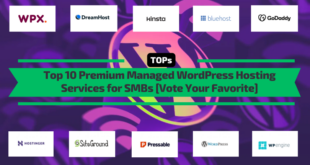판매하고 싶은 웹사이트나 온라인 비즈니스가 있나요? 웹사이트 나 비즈니스를 판매하는 것은 흥미롭지만 어려운 일입니다. 특히 이전에 해당 과정을 거치지 않은 경우라면 더욱 그렇습니다.
구매자를 찾을 수 있는 다양한 방법은 다음과 같습니다.
목차
온라인 비즈니스 브로커 이용
가장 쉬운 방법은 온라인 비즈니스 브로커를 이용하는 것입니다. 이 전문가들은 판매자와 구매자를 연결하는 데 특화되어 있습니다. 그들은 원활한 거래를 보장하기 위한 잠재적 구매자 네트워크와 지식 및 경험을 보유하고 있습니다.
브로커를 이용하면 귀하의 비즈니스 등록부터 잠재 구매자와의 협상까지 판매의 모든 측면을 처리하므로 시간과 노력을 절약할 수 있습니다. 브로커는 서비스에 대해 일반적으로 판매 가격의 일정 비율을 수수료로 부과한다는 점을 기억하세요.
내 경험에 따르면 좋은 브로커는 귀하가 직접 얻을 수 있는 것보다 더 높은 판매 가격을 받아 수수료를 보충하는 것 이상을 할 수 있습니다. 그러나 브로커를 사용하지 않으려면 아래 옵션을 고려하십시오.
브로커를 찾고 계십니까? 저희에게 연락하세요. 귀하의 상황에 따라 좋은 브로커를 추천해 드리겠습니다.
마켓플레이스에 판매용으로 등록하세요.
또 다른 옵션은 온라인 마켓플레이스에 귀하의 웹사이트나 사업체를 판매용으로 등록하는 것입니다. Flippa 및 Motion Invest와 같은 많은 마켓플레이스는 사이트와 회사를 사고 파는 데 사용됩니다. 마켓플레이스 수수료는 다양하지만 때로는 브로커 수수료보다 낮습니다.
이러한 마켓플레이스를 사용하면 트래픽, 수익 및 요구 가격에 대한 세부 정보가 포함된 웹사이트나 업체 목록을 만들 수 있습니다. 그러면 잠재 구매자가 목록을 찾아보고 관심이 있으면 연락할 수 있습니다.
마켓플레이스는 일반적으로 브로커로부터 얻을 수 있는 모든 서비스를 제공하지는 않지만 잠재적 구매자에게 노출되는 데 도움이 될 수 있습니다(종종 가장 어려운 부분임). 대부분의 브로커는 소규모 웹사이트 및 기업과 협력하지 않지만 마켓플레이스는 가능합니다.
비공개로 판매
판매를 독립적으로 처리하고 싶다면 웹사이트나 비즈니스를 비공개로 판매해 볼 수도 있습니다. 여기에는 잠재 구매자에게 연락하고 직접 협상하는 것이 포함됩니다.
개인적으로 판매하는 가장 일반적인 이유는 브로커 또는 마켓플레이스 수수료 지불을 피하기 위한 것입니다. 그러나 내 경험에 따르면 많은 구매자는 개인 판매에 대해 좋은 중개인이 얻을 수 있는 만큼 많은 비용을 지불할 의향이 없습니다. 따라서 결국에는 스스로 팔아서 더 많은 돈을 가지고 떠날 수도 있고 그렇지 않을 수도 있습니다.
특정 구매자를 염두에 두고 있고 공정한 가격을 받고 있다고 확신한다면 사이트나 비즈니스를 비공개로 판매하는 것이 좋습니다. (귀하의 비즈니스 가치를 알아보려면 비즈니스 평가를 받으십시오.) 그렇지 않으면 자격을 갖춘 중개인과 협력하는 것이 일반적으로 더 나은 접근 방식입니다.
중개인이나 마켓플레이스 없이 웹사이트나 온라인 비즈니스를 판매하기로 결정한 경우 잠재 구매자를 찾을 수 있는 몇 가지 방법은 다음과 같습니다.
온라인 비즈니스에 투자하는 회사에 문의하세요
많은 회사와 개인이 온라인 비즈니스 포트폴리오를 소유하고 관리합니다 . 대부분의 경우 특정 기준을 충족하는 기업을 인수합니다. 특정 유형의 웹 사이트나 비즈니스(예: 전자 상거래 또는 콘텐츠 기반 웹 사이트) 또는 특정 산업이나 틈새 시장에 중점을 둘 수 있습니다.
비즈니스 모델에는 온라인 비즈니스 인수가 포함되므로 이러한 회사와 개인은 일반적으로 판매자의 제출이나 문의에 열려 있습니다. 아래에는 몇 가지 예가 나열되어 있지만 다른 예도 많이 있습니다.
해당 업계의 이전 구매 내역이 있는 회사에 문의하세요.
구매자를 찾는 가장 좋은 방법 중 하나는 다른 유사한 온라인 비즈니스를 구매한 사람이나 회사에 연락하는 것입니다. 그들이 귀하의 경쟁사 중 하나를 인수했다면 귀하의 사업체 인수에도 관심이 있을 수 있습니다.
과거에 인수를 경험한 개인과 회사는 자신에게 적합하다면 다른 사업체를 인수할 가능성이 더 높습니다. 그들은 기존 회사를 구매하는 것의 가치를 봅니다.
먼저, 해당 업계에서 온라인 비즈니스를 구매한 사람과 회사를 찾아야 합니다. 한동안 업계에 종사해 오신 분이라면 이러한 회사 중 몇몇이 누구인지 이미 알고 계실 것입니다. 그렇지 않은 경우 인수에 대한 보도 자료를 검색할 수 있습니다. 일부 데이터베이스(예: LexisNexis 및 Mergent Online)도 인수 및 합병에 대한 세부 정보를 제공하지만 일반적으로 중요한 인수만 다루고 구독료를 부과합니다.
과거에 인수한 개인과 회사를 알게 된 후 다음 단계는 적합한 사람과 연락하는 것입니다. 인수에 대한 보도 자료나 기사를 찾을 수 있다면 관련 누군가의 인용문을 찾을 수 있습니다. 이는 누구에게 연락해야 하는지를 알려주는 좋은 지표가 될 수 있습니다.
회사에 LinkedIn 페이지가 있으면 직원과 직위를 찾아볼 수 있습니다. 올해 초 저는 LinkedIn에서 누군가에게 연락하여 사이트를 판매했습니다. 그의 직함은 비즈니스 개발 부사장이었는데, 운이 좋게도 첫 번째 시도에서 적합한 사람에게 연락할 수 있었습니다.
인수로 이익을 얻을 수 있는 회사에 문의
전략적 인수를 통해 기업은 전환 과정에서 특정 방식으로 제품과 서비스 또는 고객을 확장할 수 있습니다. 예를 들어, 금융 미디어 회사가 교육 분야에 진출하려는 경우 이미 온라인 금융 강좌를 제공하는 기업을 인수할 수 있습니다.
전략적 인수 가능성을 찾으려면 누가 귀하의 비즈니스 소유권을 획득함으로써 가장 큰 이익을 얻을 수 있는지 고려하십시오. 청중과 고객에게 접근하거나 제품을 판매하면 누가 이익을 얻을 수 있습니까?
잠재적인 전략적 구매자를 파악한 후에는 그들에게 연락하여 그들이 귀하의 웹사이트나 비즈니스를 구매함으로써 이익을 얻을 수 있다고 생각하는 이유를 설명해야 합니다.
Facebook 그룹 사용
Facebook 그룹은 웹사이트나 비즈니스를 판매하는 데 매우 유용할 수 있습니다. 특히 웹사이트와 온라인 비즈니스를 사고 파는 여러 그룹이 존재합니다. 가장 좋은 것 중에는 Flipping Websites, Website Flipping, Niche Website Flippers 및 Upniche가 있습니다. 이 그룹에는 수천 명의 구매자와 판매자가 있으며 많은 활동이 있습니다.
이러한 Facebook 그룹을 통해 판매되는 대부분의 웹사이트는 규모가 더 작습니다. 6만 달러에 달하는 거래는 많이 찾을 수 없습니다. 그러나 약 $20,000 이하의 가격으로 사이트를 판매하려는 경우 잠재 구매자가 많이 있습니다.
틈새 시장이나 산업별 Facebook 그룹을 사용할 수도 있습니다. 사업주를 대상으로 하는 것이 가장 좋습니다.
파트너 및 계열사에 문의
개인이나 기업과 협력한 적이 있나요? 제휴 프로그램을 통해 사이트에서 수익을 창출하는 경우 홍보하는 회사에 문의할 수 있습니다. 그리고 제품을 판매하는 경우 일부 주요 계열사에 문의할 수 있습니다.
교차 프로모션이나 다른 유형의 파트너십 또는 협업을 수행했을 수도 있습니다. 이러한 계약을 맺은 사람은 누구에게나 연락할 가치가 있을 수 있습니다. 그들은 귀하의 청중에게 다가가거나 귀하의 제품을 판매하기 위해 귀하의 사이트를 구매하는 데 관심이 있을 수 있습니다.
해당 업계의 다른 전문가에게 문의하세요
또한 동종 업계의 사람들에게 연락하여 온라인 비즈니스 판매에 관심이 있다고 말할 수도 있습니다. 구입하고 싶은지 물어볼 필요는 없지만, 이상적으로 맞는 사람을 알고 있는지 물어볼 수는 있습니다. 이 접근 방식은 네트워크를 기하급수적으로 확장합니다.
귀하의 연락처를 살펴보고 귀하의 업계에서 잘 알려진 누구에게나 연락하십시오. 이메일 주소와 LinkedIn 연결을 확인하여 연락할 수 있는 사람을 알아보세요.
경쟁업체에 문의하세요
선택적으로 경쟁업체에 연락하여 귀하의 비즈니스를 구매하고 싶은지 확인할 수 있습니다. 모든 판매자가 이 경로를 원하는 것은 아니므로 건너뛰어도 괜찮지만 경쟁업체가 이상적인 구매자가 될 수 있습니다.
 Monetize.info 디지털 자산으로 더 나은 수익을 창출할 수 있도록 도와드립니다! 💰👍
Monetize.info 디지털 자산으로 더 나은 수익을 창출할 수 있도록 도와드립니다! 💰👍

![온라인 비즈니스를 위한 구매자를 찾는 10가지 방법 [예시 포함]](http://monetize.info/wp-content/uploads/2024/04/10-Ways-To-Find-a-Buyer-for-Your-Online-Business-With-Examples-660x330.webp)






